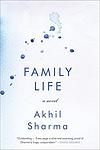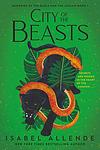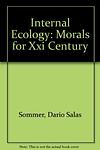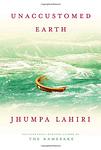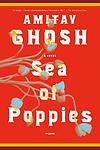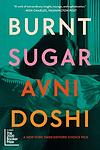The Greatest Chilean, Indian "Fiction" Books Since 2000
Click to learn how this list is calculated.
This list represents a comprehensive and trusted collection of the greatest books. Developed through a specialized algorithm, it brings together 300 'best of' book lists to form a definitive guide to the world's most acclaimed books. For those interested in how these books are chosen, additional details can be found on the rankings page.
Genres
Countries
Date Range
Reading Statistics
Click the button below to see how many of these books you've read!
Download
If you're interested in downloading this list as a CSV file for use in a spreadsheet application, you can easily do so by clicking the button below. Please note that to ensure a manageable file size and faster download, the CSV will include details for only the first 500 books.
Download-
1. 2666 by Roberto Bolaño
The novel is a sprawling, ambitious work that spans continents and time periods, centering around an elusive, reclusive German author. It intertwines five different narratives: a group of European academics searching for the author, a professor in Mexico dealing with his own personal crises, a New York reporter sent to cover a boxing match in Mexico, an African-American journalist in Detroit, and the horrifying and unsolved murders of hundreds of women in a Mexican border town. The narratives are linked by themes of violence, mystery, and the search for meaning in a chaotic world.
-
2. The White Tiger by Aravind Adiga
"The White Tiger" is a darkly humorous novel set in modern-day India that explores the country's class struggle through the eyes of an ambitious and cunning protagonist. Born in a poor village, he moves to Delhi to work as a chauffeur for a rich family. He eventually breaks free from his life of servitude by committing an act of shocking violence, and uses his newfound freedom to become a successful entrepreneur in Bangalore. The story, told through a series of letters written to the Chinese Premier, is a scathing critique of India's social and economic disparities, and the corruption that permeates all levels of society.
-
3. The Inheritance of Loss by Kiran Desai
This novel explores themes of love, loss, and the human struggle for identity amidst political unrest. Set in India during the Nepalese movement for an independent state, the narrative follows the lives of a retired judge living in the Himalayas, his granddaughter, and his cook. As the political situation worsens, each character must grapple with their own personal issues, including the judge's regret over his failed marriage and his granddaughter's struggle to find her place in the world. The cook, meanwhile, dreams of a better life for his son in the United States. The narrative weaves together these individual stories to create a poignant tapestry of human resilience in the face of adversity.
-
4. Family Life by Akhil Sharma
Family Life is a poignant, semi-autobiographical novel that follows the experiences of an Indian family that immigrates to America in the late 1970s. Their dream of a better life is shattered when the older son suffers a terrible accident that leaves him brain-damaged. The story is narrated by the younger son, who struggles with the pressures of his parents' expectations, the trauma of his brother's condition, and the cultural dislocation of being an immigrant in America. The novel explores themes of family, love, loss, and the immigrant experience.
-
5. City of the Beasts by Isabel Allende
A 15-year-old boy is forced to move in with his eccentric grandmother after his mother falls ill. Together, they embark on a journey to the Amazon rainforest in search of a legendary, healing beast. Along the way, they encounter various challenges, including dangerous animals, harsh environments, and a group of indigenous people with mystical powers. The boy learns to overcome his fears and prejudices, forming a strong bond with the indigenous people and the rainforest itself.
-
6. Internal Ecology Morals For Xxi Century by Dario Salas Sommer
This book delves into the intricate relationship between individual moral development and the broader ecological balance of our planet, proposing that the environmental crises of the 21st century are deeply intertwined with the moral and ethical decay observed in contemporary society. The author argues that by fostering a deeper understanding of our internal ecology—our thoughts, emotions, and spiritual well-being—we can cultivate a more harmonious relationship with the external world. Through a blend of philosophical insight and practical guidance, the text invites readers to embark on a journey of personal transformation as a foundational step towards addressing the global environmental challenges of our time, emphasizing the critical role of individual responsibility and ethical conduct in shaping a sustainable future.
-
7. Unaccustomed Earth by Jhumpa Lahiri
"Unaccustomed Earth" is a collection of short stories by Jhumpa Lahiri that explores the lives of Bengali immigrants and their children in the United States. The stories focus on themes of family, love, loss, and cultural identity as characters navigate the challenges of assimilation and the tensions between their American and Bengali identities. The collection is divided into two parts, with the first featuring interconnected stories about the experiences of two generations of a Bengali family, and the second featuring standalone stories that explore similar themes. Overall, the book offers a nuanced and poignant portrayal of the immigrant experience and the complexities of cultural identity.
-
8. Sea of Poppies by Amitav Ghosh
"Sea of Poppies" is a historical novel set in the 1830s, just before the Opium Wars. It traces the intertwined lives of a diverse group of characters, from a raja turned convict, a widowed poppy grower, a French orphan, to a mulatto American freedman, all of whom are brought together on the Ibis, a former slave ship now used for transporting opium. The story explores the social and economic impact of the opium trade, colonialism, and the caste system, while also delving into the personal histories, relationships, and struggles of the characters.
-
9. Q & A by Vikas Swarup
The book is a gripping tale of a young Indian waiter who becomes the biggest quiz show winner in history, only to be arrested for cheating. Through a series of flashbacks and heart-wrenching stories, we learn how his life experiences provided him with the answers to the show's questions. Each chapter reveals a different episode of his past, from his childhood in the slums to various encounters that taught him lessons about love, betrayal, and survival, painting a vivid portrait of the struggle and resilience of life in contemporary India.
-
10. Burnt Sugar by Avni Doshi
This novel delves into the complex and fraught relationship between a mother and daughter against the backdrop of contemporary India. The daughter, now an adult, grapples with her mother's advancing dementia and the bitter memories of a childhood marked by neglect and unconventional parenting. As the mother's memory deteriorates, the daughter is forced to confront the painful legacy of their past and the ambiguity of her filial obligations. The narrative weaves through themes of memory, betrayal, and the inextricable bond of family, painting a portrait of two women bound by love and resentment in equal measure.
-
11. The Association Of Small Bombs by Karan Mahajan
"The Association of Small Bombs" by Karan Mahajan is a novel that explores the aftermath of a bomb blast in Delhi, India. The story follows the lives of two families affected by the tragedy, as well as the bomber himself. Through their perspectives, the novel delves into themes of grief, revenge, and the complexities of terrorism. Mahajan's writing is both intimate and expansive, offering a nuanced portrayal of the human impact of violence.
-
12. Ghachar Ghochar by Vivek Shanbhag
"Ghachar Ghochar" is a compelling novella that explores the dynamics of a close-knit Indian family whose lives change dramatically after a sudden financial windfall. The story, narrated by an unnamed protagonist, examines the moral and emotional complexities that arise from their newfound wealth, leading to tension, corruption, and a disintegration of their former values. The title, a nonsense phrase coined by the family, symbolizes the tangled mess their lives have become - a situation so complicated that it's beyond any solution.
-
13. Djinn Patrol On The Purple Line by Deepa Anappara
Set in a sprawling slum in India, this novel follows nine-year-old Jai and his friends as they embark on a quest to find a missing classmate. As children in their community continue to disappear, Jai takes it upon himself to become a detective, determined to uncover the truth. Faced with poverty, corruption, and a society that disregards their plight, Jai and his friends navigate the complexities of their surroundings while grappling with their own fears and dreams. Through their eyes, the book explores themes of innocence, resilience, and the harsh realities of life in a marginalized community.
-
14. Trust by Hernán Díaz
"Trust" by Hernán Díaz is a novel that follows the journey of a young man named Rafael, who leaves his home in Mexico to pursue the American Dream in the 19th century. Rafael's journey takes him through the Wild West, where he encounters a diverse cast of characters and faces numerous challenges. Along the way, he learns about the complexities of trust and betrayal, and ultimately discovers the true meaning of home and belonging. The novel is a poignant exploration of identity, immigration, and the American experience.
-
15. The Glass Palace by Amitav Ghosh
"The Glass Palace" is a sweeping historical epic that spans over a century, tracing the tumultuous events of the British invasion of Burma and its aftermath. The story follows the life of Rajkumar, an Indian orphan, who rises from the depths of poverty to become a wealthy businessman. His journey is intricately linked with the fates of those around him, including Dolly, a maid in the royal palace, and a host of other characters whose lives intersect across the landscapes of Burma, India, and Malaya. The novel explores themes of love, loyalty, and the impacts of colonialism, while providing a deep insight into the historical and political complexities of the Southeast Asian region.
Reading Statistics
Click the button below to see how many of these books you've read!
Download
If you're interested in downloading this list as a CSV file for use in a spreadsheet application, you can easily do so by clicking the button below. Please note that to ensure a manageable file size and faster download, the CSV will include details for only the first 500 books.
Download


